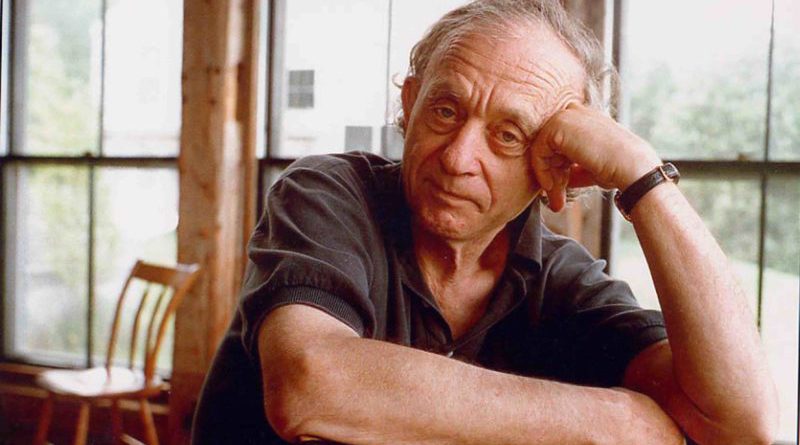INTERVIEW: Frederick Wiseman turns his lens on ‘Monrovia, Indiana’
Photo: Frederick Wiseman is the director of the new documentary Monrovia, Indiana. Photo courtesy of John Ewing / Provided by press agent with permission.
Throughout his illustrious career, Frederick Wiseman, the celebrated documentarian with a long list of critically acclaimed films, has turned his eye on many communities and institutions in the United States. Whether it’s the New York Public Library or Jackson Heights in New York City, the subject areas of his documentaries are varied and always make for interesting viewings.
His latest is Monrovia, Indiana, set in a small farming community in the Midwest. The movie is currently playing New York City’s Film Forum and will open Friday, Nov. 2 in Los Angeles.
“I had only been in Monrovia two hours before I started shooting,” Wiseman said in a recent phone interview. “And it’s very important to approach the subject with an open mind, an open and clear mind. In one sense, the movie is a report on what I learned. I hope it’s also a dramatic narrative. It’s a dramatic narrative, which is an expression of what I think about Monrovia after spending 10 weeks there and studying the rushes for a year.”
The film is memorable for many reasons. It offers a thorough and touching portrait of Americans in the heartland, struggling with economic difficulties and the toils of everyday jobs. It’s also a look into the current landscape of American society. Although the commander in chief may dominate most headlines nowadays, Wiseman’s film is not directly centered on politics or President Donald Trump; in fact, the film sidesteps explicit musings on that topic and instead brings viewers into the inner workings of a community — with no judgment or overt interpretation.
In other words, this is classic Wiseman.
“It’s only toward the end of the editing that I work out the themes and the point of view,” the director said. “Before that, during the editing, I’m just editing individual sequences, and I’m not thinking about structure. I can’t think about structure in the abstract. I have to see the consequences of starting the film one way and ending it one way, what the consequences are putting two sequences together.”
Monrovia, Indiana is as much a snapshot of a place as it is a snapshot of a time period. This is middle America in the past year or so, and who knows, perhaps the film would be completely different in five, 10, 20 years.
“I hope I’m still breathing, so I can go back in a decade and find out,” he said with a laugh. “It’s certainly an effort to make a portrait of life in Monrovia as of the time I made the film. Whether it will change or not, I have no idea.”
Wiseman’s back catalog is extensive, a real greatest hits of the 20th century. There’s At Berkeley and Crazy Horse, some of his more recent titles, and Titicut Follies and Hospital from earlier in his career. He has professionally been going strong for more than 50 years, constantly observing with his lens and bringing audiences deeper into subjects that supposedly live on the surface of American society.
Wiseman, interestingly, does not make his films with any one person in mind.
“I don’t know how to consider the audience,” he admitted. “I mean, I have a hard enough time making up my own mind. Anybody that tells you they know the audience is either lying or wanting to dilute the film to reach the lowest common denominator, and I have no interest in doing that. … I know nothing about your interests, your background, the movies you like, the books you read, your economic situation. It would be totally presumptuous of me. An audience is an abstraction. I have no idea how to think about that. I don’t know what age they are, what sex they are, what education they have, their economic status. I have a hard enough time making up my own mind, and I make the movie to satisfy myself. And I hope that other people will respond to it. I don’t know what else to do. Anything else could be total phony baloney.”
He spent several weeks in the community of Monrovia and then many months editing the entire project. His decision to stop recording any documentary feature is always a subjective one. Sometimes it’s a choice that comes after keeping track of the sequences and realizing he has enough. Other times, he simply wants to go home.
“I try to keep track of the sequences that are shot during the shooting, and it may be something as simple as I want to go home to my own bed,” he said. “It’s an intuitive feeling that I think I’ve got it, or sometimes things begin to repeat themselves. Or I feel there’s nothing else to get that I’m interested in, so I go home.”
To describe this influential man and his work can be a daunting task. He’s certainly a documentarian, but is he a journalist? Is he an historian?
Here’s how Wiseman summed up labels: “I think my films are more novelistic than they are journalistic. I think the editing technique I use is more like writing, more like fiction, more like writing a novel than it is TV journalism.”
By John Soltes / Publisher / John@HollywoodSoapbox.com
Monrovia, Indiana, directed by Frederick Wiseman, is currently running at New York City’s Film Forum. It opens Friday, Nov. 2 in Los Angeles. Click here for more information.

